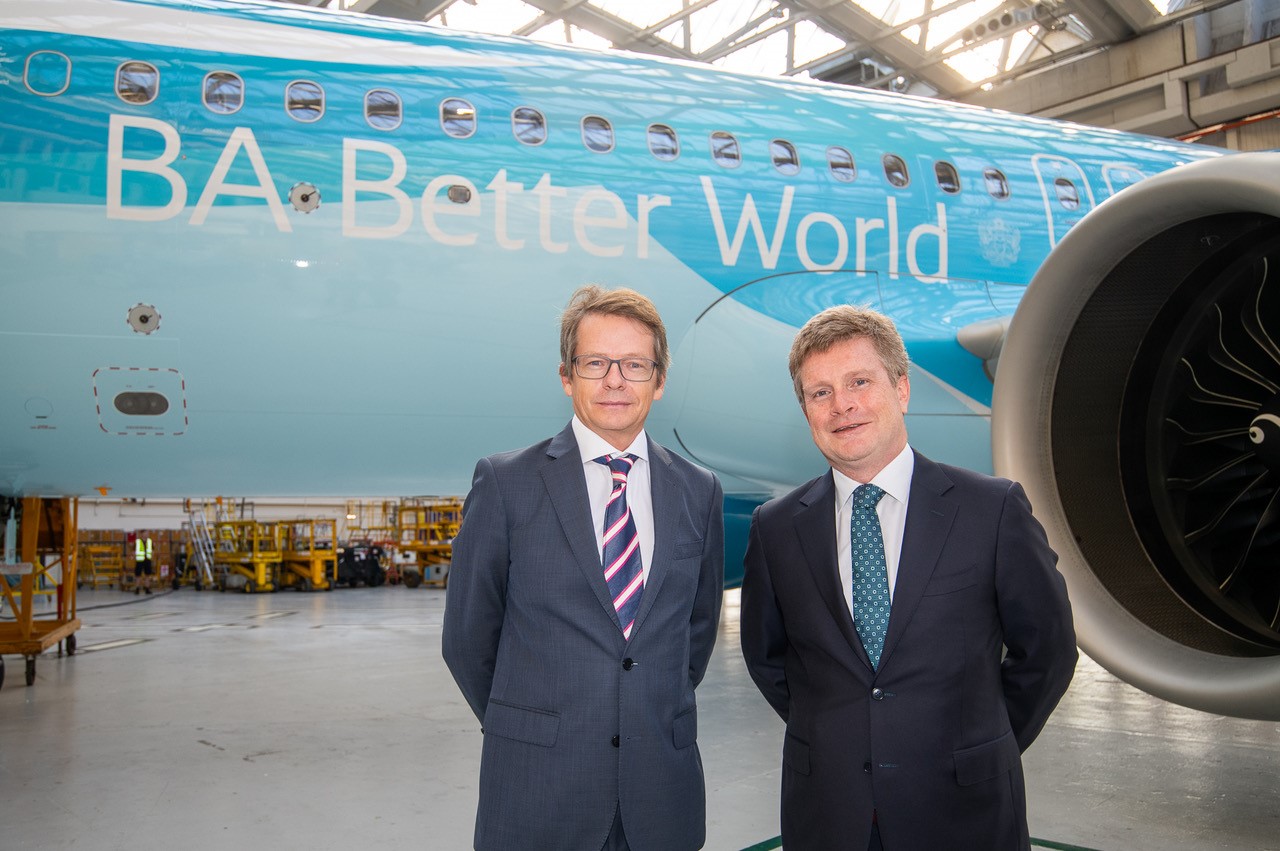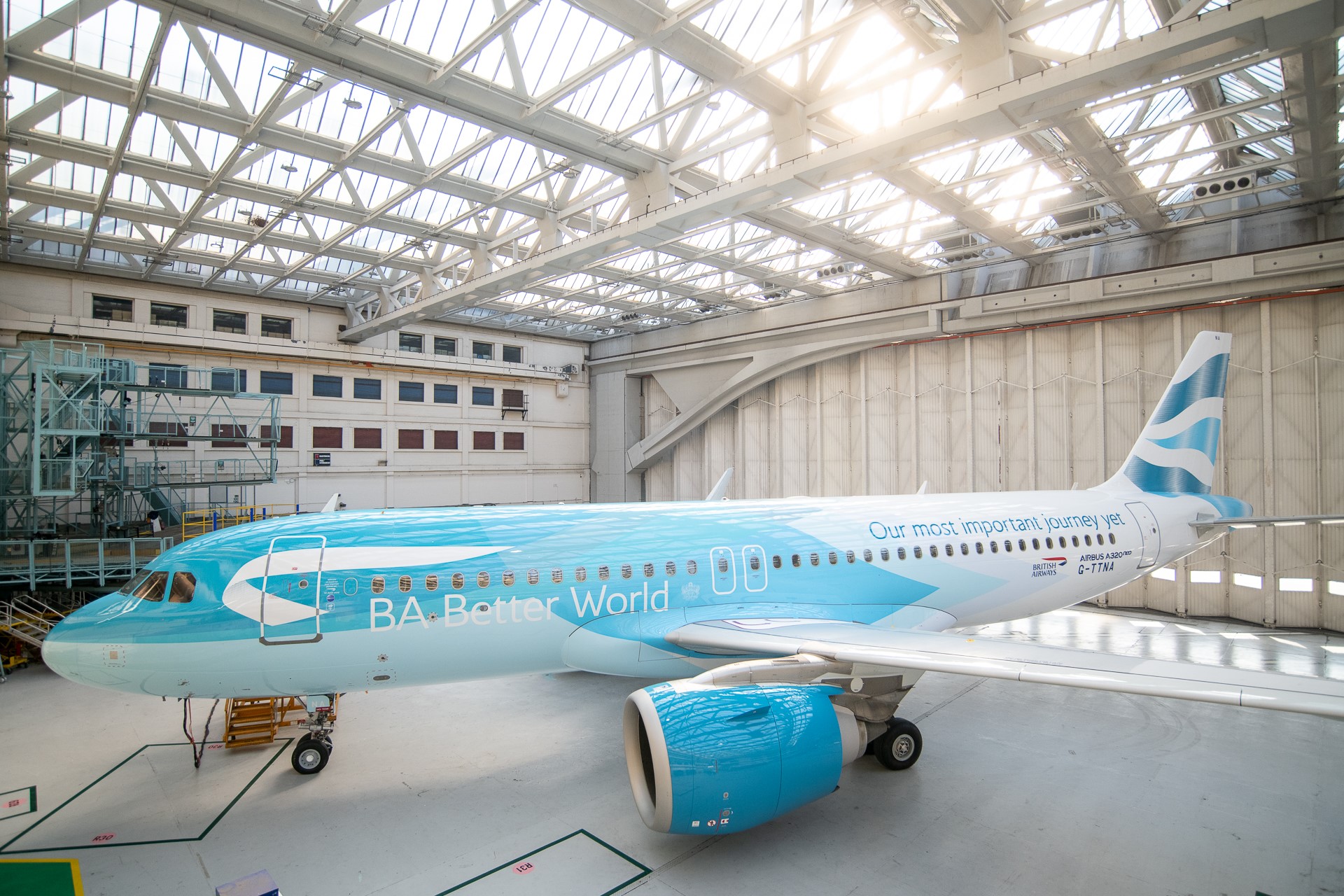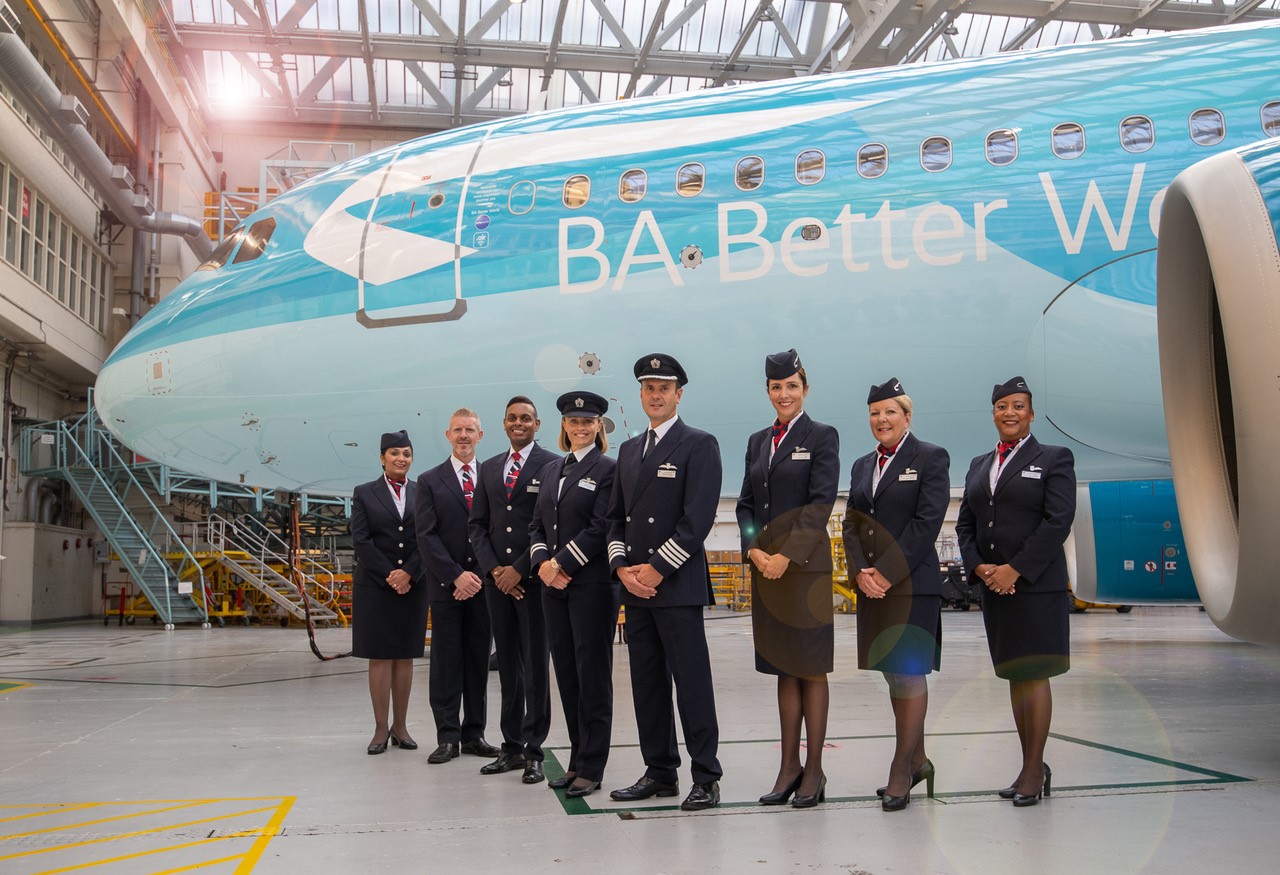The airline said this marked a further commitment to put sustainability at the heart of its business, from reducing emissions and waste and positively contributing to the communities it serves, to creating a great place for people to work in order to build a resilient, responsible business.
At an event at British Airways’ Heathrow engineering base on Tuesday (Sep 7), the airline unveiled a new look for one of its most fuel-efficient short-haul aircraft, an A320neo, which it has painted in its new BA Better World sustainability colours as part of a partnership with aircraft manufacturer Airbus.
“With BA Better World we’re on our most important journey yet – to a better, more sustainable future and one which will ensure the long-term success of our business,” said British Airways CEO and Chairman, Sean Doyle.
“We’re clear that we have a responsibility to reduce our impact on the planet and have a detailed plan to achieve net zero carbon emissions by 2050, including investing in more fuel-efficient aircraft, improving our operational efficiency and investing in the development of sustainable aviation fuel and zero emissions aircraft.
“It is only through working in partnership with Government and industry that we’ll be able to reach our targets and I’m delighted that, thanks to our new collaboration with bp, we’re able to source enough sustainable aviation fuel with respect to all our flights between London, Glasgow and Edinburgh during COP26, substantially reducing the emissions associated with taking our customers to and from COP26by up to 80% compared to traditional jet fuel.
“This commitment for COP26 is in addition to the mandatory carbon trading we already operate in the UK and our own further voluntary carbon offsetting of our UK domestic flights,” he said.

British Airways has long been leading the aviation industry’s efforts to decarbonise. In 1992 it was the first airline to report its carbon footprint. In 2002 it became the first airline to participate in UK emissions trading. In 2019 British Airways’ parent company IAG became the first airline group in the world to commit to net zero CO2 emissions by 2050, and last year British Airways became the first major airline to voluntarily offset all emissions from its domestic flights.
After unveiling the new aircraft livery, British Airways announced a collaboration with bp, committing to source sustainable aviation fuel with respect to all its flights between London, Glasgow and Edinburgh during the UK’s COP26 climate change summit being held in Glasgow later this year.
Sustainable aviation fuel (SAF) is blended with traditional jet fuel to comply with aviation fuel certification standards. The SAF sourced for the COP26 period provides a lifecycle carbon reduction of up to 80% compared to traditional jet fuel.

In a UK first, British Airways also announced that from today its customers can purchase sustainable aviation fuel to reduce their carbon footprint via its not-for-profit organisation Pure Leapfrog. This is in addition to the existing option for customers to offset their emissions.
The collaboration with bp forms part of British Airways’ long-term commitment to the development and use of sustainable aviation fuel. The airline’s parent company, International Airlines Group (IAG), is investing $400m over the next 20 years into the development of SAF, with British Airways forming partnerships with a number of technology and fuel companies to develop SAF plants and purchase the fuel, including with Velocys in the UK and LanzaJet in the US.
British Airways, as part of an IAG commitment, recently stated it would power 10 per cent of its fuel needs with SAF by 2030.

At the event on Tuesday, the airline also showcased some of the initiatives it has introduced to improve sustainability in the air and on the ground, including switching from diesel to renewably powered electric pushback vehicles and removing weight from its aircraft by introducing lighter seats and trollies, inflight magazines and paper flight manuals.
It also outlined its efforts to remove single-use plastic and source more products made from recycled materials, including its First Class duvet and World Traveller Plus amenity kits.
The airline’s new sustainability strategy is not simply focused on the planet, with two further priorities concentrated on its people and driving responsible business. The carrier also announced a new BA Better World Community Fund to further the positive work it does within the UK and global communities it flies to and pledged to take positive action in many other areas of its business.